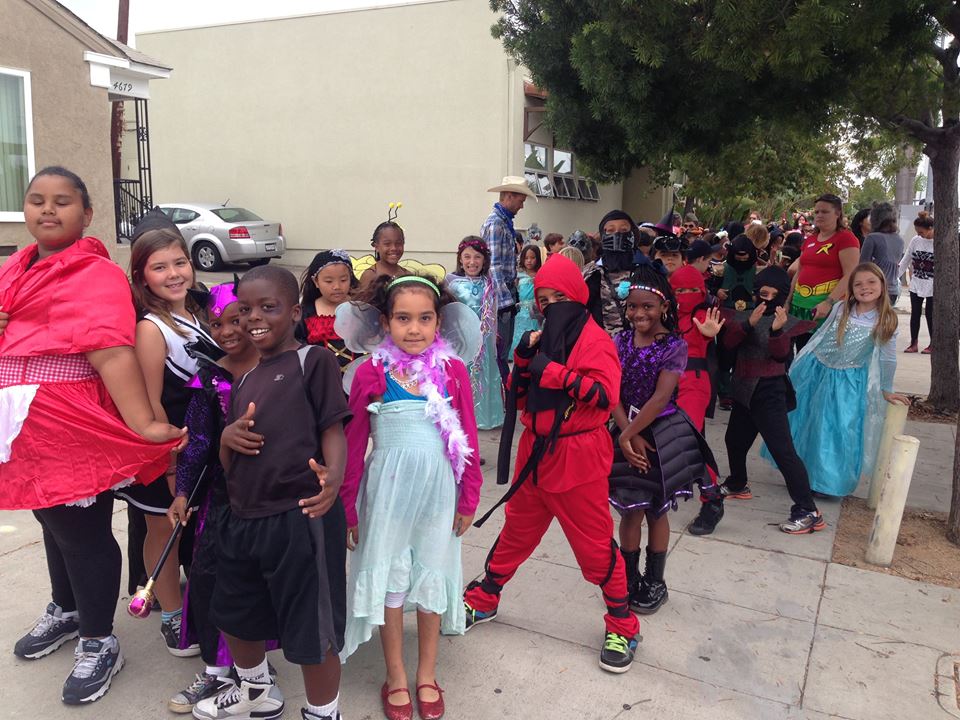
By Catherine Lewis
SDGVA, San Diego Global Vision Academy, is an outstanding writing and service-learning based elementary school that affords its community’s children a well-deserved haven of education. Its Motto, “Write the future!” emphasizes that literary skills are of fundamental importance, and supports Poetic Youth’s involvement with 7th and 8th grade students this year. Poetic Youth offers the bright students at SDGVA, who are already trained to generate ideas through writing, an additional outlet to be creative and expressive. I have had the great fortune of working with the 7th graders of SDGVA this fall semester. This is the first opportunity I have had to teach creative writing, let alone poetry, to any age level of students. In many ways, before teaching, I considered it may be more difficult to engage with older students than younger girls whom I have extensively interacted with in my previous experience as a Girl Scout. After stepping foot inside the classroom, however, I am pleased to note the level of humor, insight and general maturity that accompanies working with the 7th grade students.
Our session that fell on the Friday of Halloween was rife with the spirit of the holiday, as most students dressed in costume. There was an equal air of focus and dedication as students engaged in writing poems about the personas of their costumes. A myriad of characters came to life with the vivid poems written by students dressed the part. A boxer shared her work with class, engrossing me with her keen lines: “Blood drips down my face/My boxing gloves are torn, ‘Everest’ has lost its “E”.’ This writing exercise began as students wrote a list of words that described their costumes. Students then were asked to write about what their persona would be doing on Halloween night. After the brainstorming stage, students were challenged to use a line they generated about their persona and create six poems about them. It appeared to very be effective to slowly build up to writing the actual poem, allowing students to draft words and ideas about their costumed characters. Students were so excited about the process of writing the poem that they wished to share after each stage of brainstorming. This excitement was contained and channeled into the final sharing of their poetry. A complementary strategy that helped this exercise run smoothly was providing an overhead projection with instructions.
Projecting this information instead of writing it on the board saves valuable time in the classroom and enables the teacher more time to engage with students instead of repeating instructions. Working with 7th grade students has tested my strengths and weakness as a facilitator. I have observed my strength in talking to the students one-on-one and my weaknesses in projecting my voice to the group as a whole. It is extremely rewarding to spend time with each and every one of the students, approaching them as they are writing. Interacting with one student at a time is critical to forging a genuine connection with him or her, and enables time to carefully read and make comments about his or her poetry. The more time I am able to teach the 7th grade students, the deeper the connections I am able to build with students. I find it more challenging to engage with the student body as a whole. Students talk quietly at times, and it is my wish for their voices to be heard, allowing the students a chance to share and learn from each other. Therefore, I have learned I must teach through setting a strong example of projecting my voice. It is at times an ongoing battle to enable certain soft spoken students a chance to be heard by all of their fellow classmates. Through this experience, I have been tested to be a more vigilant and scrupulous instructor in terms of encouraging students to repeat themselves and setting a strong example of being vocal.
